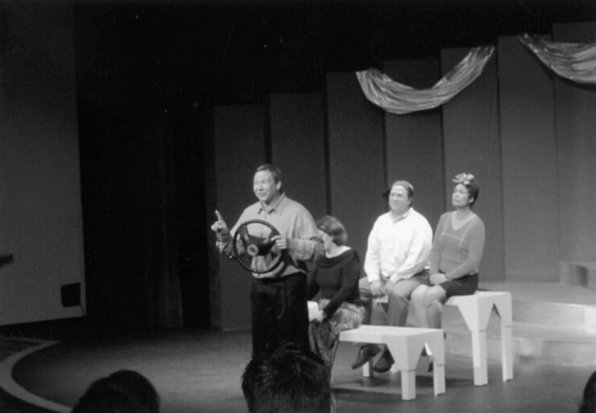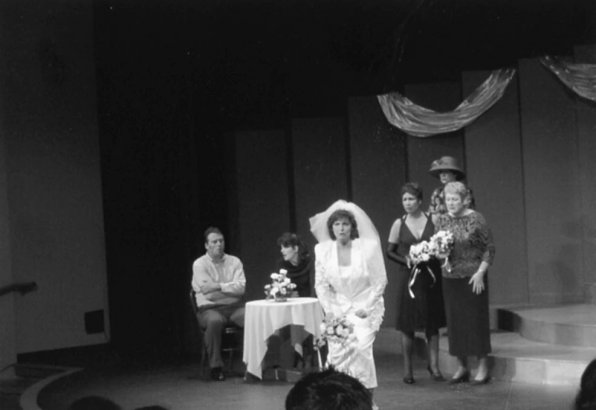Meg Whittemore had built her own business and a comfortable life largely on the back of a strong independent spirit. So when she was struck with a diagnosis of breast cancer at age 61 in May of last year, she entered the fight with a familiar steely sense of determination.
But then came the widespread side effects of chemotherapy – “if there was a side effect to be had, I ended up getting it,” she said – that knocked her sideways from July to November and eventually compelled her to stop working. Then came the eviction notice delivered in October, not because she had fallen behind on her rent but because the property owner had decided to sell, forcing her to relocate in the middle of the fight for her life.
For the first time she could remember, guile alone wasn’t going to be enough.
“I discovered it was no time to be proud,” Whittemore said. “I had to face the realities of the situation.”
Almost eight years earlier, oncology nurse Jane Skoog had faced a frustrating reality of her own – a patient undergoing chemotherapy treatment tried to return a prescription for anti-nausea medication because she said if she paid for it, she wouldn’t be able to afford groceries for her family that week.
That reality, Skoog decided, needed to change.
So Skoog and her husband, Bob, teamed with friend Gerri King – all from Concord – and others to create Performers Who Care, a community theater troupe whose mission was to raise money to help people through financial hardships while dealing with chemotherapy. They worked with Concord Hospital to create the Lend Me A Hand Fund, putting on a performance – fittingly – of Laughter is the Best Medicine in 2004 that raised more than $15,000 for the cause.
Lend Me A Hand has since helped guide countless patients through their journey, providing money for things like prescriptions, supplements, gas, groceries and electric bills. Money from the fund is given out in the form of Visa check cards, gas cards and grocery cards.
When things were looking particularly bleak for Whittemore, it was the fund that provided the first beams of light.
“When I began this journey, I went into it with a very strong sense of self-sufficiency because I’ve always been that way,” Whittemore said. “But with the financial pressures that presented themselves, a social worker at the resource center told me this program was available. And it’s not just the financial support, which was very important in alleviating a lot of my anxieties, but it’s also underlying, where I discovered such a strong community. To lend a helping hand, that’s the definition of community. The fact that there was this program to help put gas in your car and food on your table – even though people who make the donations don’t think it’s much when they write a check, to the recipient of these helping hands, it makes all the difference.”
The fund is now an established part of the Payson Center for Cancer Care, and Performers Who Care continue to entertain audiences for the cause. The latest performance, a Broadway Review, will be April 19 and 20 at 7:30 p.m. in the atrium at Eagle Square. Tickets are $25, include dessert and coffee or tea and can be purchased at Caring Gifts, 18 N. Main St., at the HeartGift Boutique at the Payson Center for Cancer Care, by calling the Payson Center at 230-6035, ext. 6035 (for purchase or to pay via credit card), or by calling 226-0590 (to hold tickets at the door).
The Broadway Review will follow on the heels of the 2004 debut and performances in 2008 and 2010 that have raised a combined total of more than $30,000 for the fund.
The Gene Gillis Fund has since been established at Concord Hospital, as well, and is the inspiration for the annual Pedaling for Payson event every year. The money in that fund is used in a similar fashion, giving Concord what many medical facilities would consider an embarrassment of riches.
“Having one fund like this is pretty unusual, let alone two,” Pamela Puleo, executive director of the Concord Hospital Trust, said. “That’s what I’ve been told by a social worker at our cancer center. She’ll go to conferences and meetings and tell people about it, and she says it’s very unique, that she doesn’t hear from other people that they have this kind of thing available. We’re so proud of that. And it was Performers Who Care who started the ball rolling with it, and the cyclists picked up the ball and ran with it.”
Once Skoog – who works for New Hampshire Oncology in Hooksett but spends a fair amount of time in the Concord office at the Payson Center – decided she wanted to raise money to help, selecting the appropriate avenue was easy. She and her husband Bob had met through their involvement in theater, and they happened to be discussing the idea outside of The Works cafe one afternoon when King, a long-time friend, dancer and choreographer, walked by. Less than an hour after that meeting, Performers Who Care was born.
It’s grown to become a group of local performers ranging in age from 40s to 60s who are happy for the opportunity to act as a goofball on stage if it means acting as something of a hero to those in need.
“Theater, for me, gives me balance in my life,” King, who choreographs the group’s performances, said. “It’s what I was originally going to do with my life; be a dancer. At some point I realized, as busy as I am with work, there’s something missing. And that’s what other people in the group have said; it just gives them that extra lift. Honestly, if we all had more time we would do more performances. It’s a little tiny something you can do to alleviate an incredibly stressful situation for someone else.”
It’s not as tiny a something as King thinks.
Skoog recalled a patient who wasn’t sure how he was going to pay his rent after purchasing his medication. Much to his surprise, he was given a Visa check card from the fund.
“I was holding his hand and he looked at me, teary, and said, ‘Have you ever heard of anything this great?’ ” Skoog said. “He said, ‘This is like $1 million to me.’ ”
Another patient was trying to purchase two medications, one much more expensive than the other. But when a nurse excitedly told him the cheaper of the two would cost just $18, he took a $5 bill out of his wallet and confessed it was all he had until the end of the month, asking if he could wait until then to buy the medication.
“The nurse gave him a card from the fund and said, you keep this in your wallet, and if there’s any left after buying the medicine, hang on to it until your next check comes in. He was just dumbfounded,” Skoog said.
Whittemore was similarly moved by the assistance she received. Even now, after having gone through chemotherapy, a double mastectomy and radiation treatments to arrive at a positive diagnosis at her last doctor’s appointment – “I’m on the other side of it now,” she said – she can easily recall when some of the stress began melting away.
“Especially in these incredibly vulnerable moments in our lives, when cancer leaves you standing at the abyss, a $25 gas card means a lot,” Whittemore said. “It may seem like not a lot to someone writing a check, but to the recipient it can make the difference between a good night’s sleep and facing a very, very stressful chemo treatment. I’m deeply grateful for everything I was able to access through the resource center, to all the anonymous donors. When I look back, I’m not sure how I would have made it without this kind of help.”
Skoog has seen the impact first-hand since the fund began in 2004. People have purchased $100 worth of extra tickets for shows and asked they be donated to those who can’t afford them, while a patient knitted a quilt to be auctioned off to raise money because she didn’t have enough to donate herself. One patient who used the fund and later passed away left $100,000 in a trust for the fund because it “really spoke to them,” Skoog said.
Which is why when people react with a frown when they hear that she works in oncology, she’s quick to paint a much more pleasant picture.
The reality of the situation, it turns out, is that it’s not difficult to find loving support, no matter the circumstances.
“I’ve been there for 19 years, and people always say, isn’t that the saddest place to work? It’s not. It’s a very upbeat place,” Skoog said. “We try to make people feel comfortable and welcome. When you can go beyond just skillfully giving treatment to offering financial peace of mind, it’s just wonderful. It’s a gift to be able to work there. It’s an amazing place.”
Said Bob Skoog: “You can have children, and that can be your legacy. This fund is our legacy, and it’s really exciting to see it continue.”










